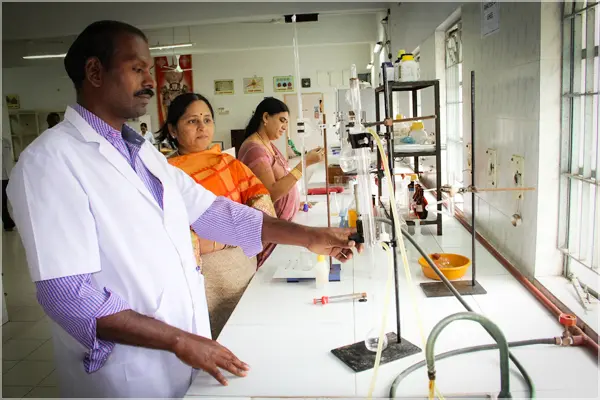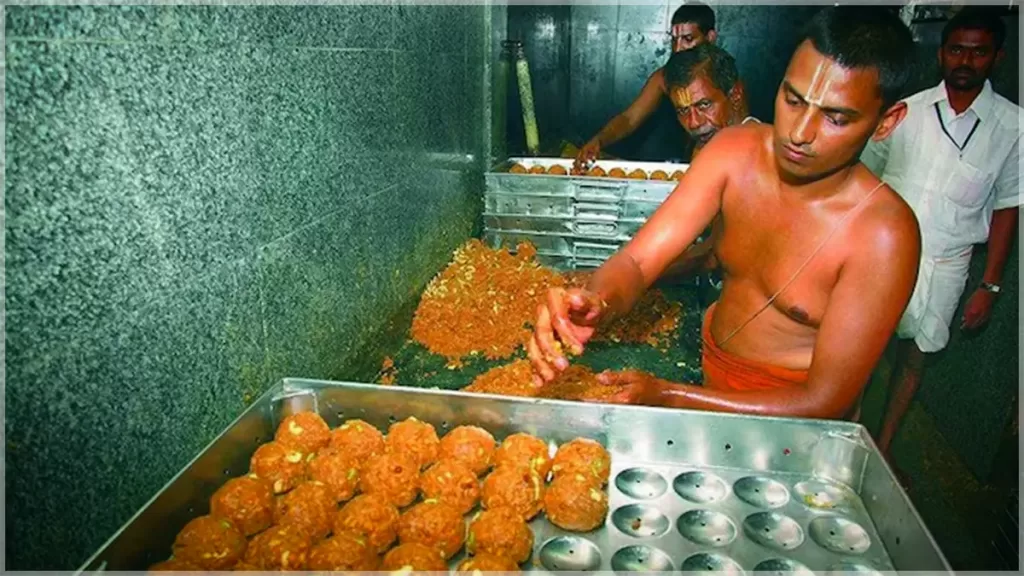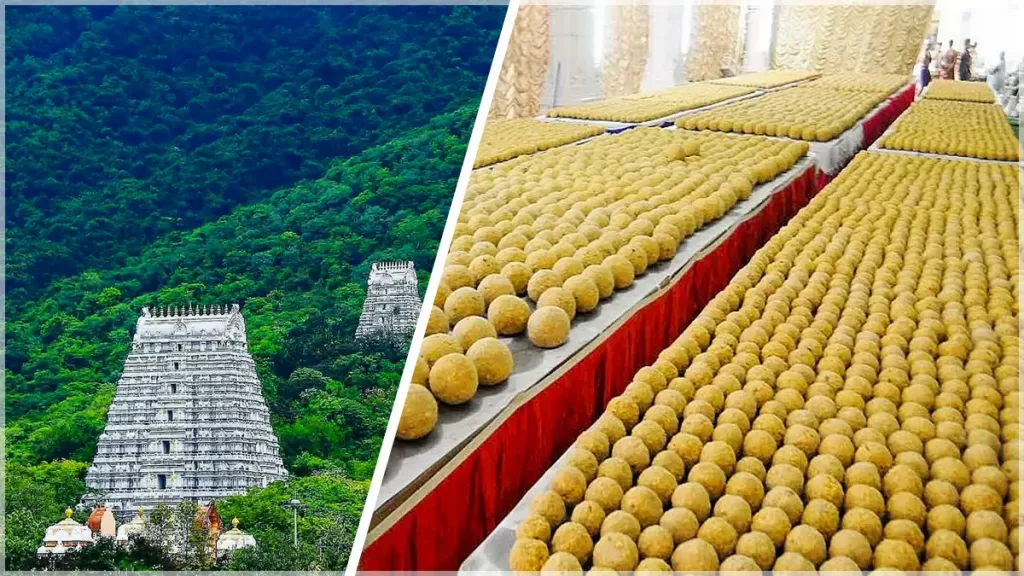There has been widespread outrage after reports emerged that animal fat was allegedly found in the prasadam (holy offering) at the famous Tirupati Temple. Devotees are shocked and questioning how such a serious issue could happen at one of India’s most revered and wealthiest temples. Tirupati receives millions in donations daily, and with such resources, it is expected that only the best quality ingredients would be used for preparing the sacred prasadam. This revelation has raised serious concerns, particularly because the temple has an entire system dedicated to making the Tirupati laddus, its most popular offering.
Table of Contents
Allegations of Adulterated Ghee in Tirupati Laddus
The controversy revolves around the ghee used in making the Tirupati laddus. Reports indicate that the ghee supplied to the temple contained animal fat, sparking outrage among devotees. The Tirumala Tirupati Devasthanam (TTD), the governing body of the temple, outsources ghee from various contractors, and now the big question is: how did adulterated ghee make its way into the temple’s supply chain? Was this a deliberate act or negligence?

This serious issue came to light after laboratory tests confirmed that the ghee used for the laddus was adulterated. The ghee, supplied by one of the contracted companies, showed fat content levels at 20, far below the pure ghee standard of 95.68 to 104.3. This indicates heavy adulteration in the ghee, leading to nationwide outcry.
TTD’s Response and Actions
In response to the uproar, the TTD stepped forward to address the issue. They confirmed that five companies supply ghee to the temple, and one of them was responsible for supplying the adulterated ghee. The temple administration admitted that they lack in-house testing facilities for ghee, which allowed the supplier to exploit the system. The TTD has now begun the process of blacklisting the supplier in question.

Tirupati Temple uses massive amounts of ghee for its laddus. Every day, the temple produces around 3 lakh laddus, requiring 42,000 kilos of ghee per month and nearly 5 lakh kilos annually. Given this scale, the temple cannot produce such quantities of ghee internally and thus relies on external suppliers.
Adulteration Scandal and Supplier Involvement
The company found responsible for supplying the adulterated ghee is AR Dairy, which had been contracted by the Andhra Pradesh government in 2023. After the adulteration was detected, AR Dairy’s supply to the temple was halted, and the company was blacklisted. However, AR Dairy has challenged these accusations, claiming that the issue arose in June and July, during which they supplied only four tankers of ghee to the temple. Despite their defense, it was found that six tankers, containing 90,000 liters of ghee, were adulterated with animal fat.
Devotees Raise Concerns About Prasadam Purity
The news has left many devotees questioning whether the temple is still using adulterated ghee in its prasadam. The TTD has reassured the public that steps are being taken to ensure the purity of the offerings. A new expert committee has been formed to oversee the supply process, and the temple has now switched to Nandini brand ghee from Karnataka, which is more expensive but of higher quality.
Political Controversy and Government Involvement

The issue has sparked a political controversy, with former Chief Minister Chandrababu Naidu blaming the previous Jaganmohan Reddy government for the scandal. Naidu accused Reddy of damaging the temple’s sanctity, while Reddy defended his administration, asserting that quality checks were regularly conducted during his tenure. The incident has also revived old accusations against Reddy, with some claiming that his government neglected Hindu temples in favor of promoting religious conversions.
The Central Government has also taken notice, with Union Health Minister JP Nadda promising a full investigation into the source of the adulteration. The case has now reached the Supreme Court, with social activists appealing to the Chief Justice for intervention.
As investigations continue, devotees of Tirupati Temple are left wondering whether they can trust the purity of the prasadam offered at one of India’s most sacred temples. The scandal has raised important questions about the need for strict quality control measures and transparency in the preparation of holy offerings, to preserve the trust of millions of devotees worldwide.


